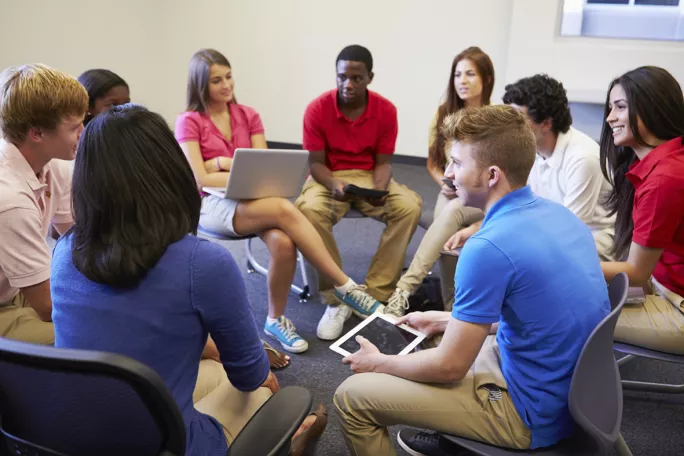How state and private schools can work together - to the benefit of all students
Last week, shadow education secretary Tristram Hunt announced that private schools would face losing their tax breaks under a Labour government if they did not work more closely with the state sector.
Following the announcement, Jarlath O’Brien, headteacher at Carwarden House Community School, Surrey, reveals the success of his state school’s existing partnership with Wellington College, a private school in Berkshire.
One of the defining problems in the British education system is the distance that exists between phases and sectors. Secondary teachers can mistrust primary colleagues; state teachers can resent teachers in the independent sector and mainstream colleagues can patronise special school teachers. Meaningful and lasting collaboration between any two schools can be difficult to achieve and requires commitment from both sides.
Although the time and effort required can be arduous, plenty of examples of independent schools and state schools working together for mutual benefit already exist. The relationships that I’m aware of are not parasitic; they’re based on a sense of equality and of shared expertise - it’s certainly not just about the use of someone else’s playing fields.
Carwarden House’s partnership with Wellington College started in 2012 with the recruitment of one of the senior teachers at Wellington to our governing body. Our schools are at the extremities of the educational continuum in England; Wellington is a coeducational independent day and boarding school and Carwarden is a small state special school. Although we appear poles apart, the reality is that our schools, while looking superficially different, have much in common, share the same values and are ultimately trying to achieve the same things.
Initially, the partnership was only at a staff and premises level: we hosted a Wellington teacher for three weeks as part of their PGCE; I delivered a speech at one of Wellington’s chapel services and we made use of their facilities for strategy meetings and our annual prizegiving evening. All good, but there was not a Carwarden student working with a Wellington student in sight. It became clear that if our partnership was to have any real strength, it needed children to be involved.
The staff involved in the partnership were conscious that the worldview of the students could be broadened considerably by spending time getting to know others they would not naturally gravitate towards. To achieve this, Ed Venables, housemaster at Wellington, and Maria Ramsay, a sixth-form teacher at Carwarden House, have created a way for our students to interact. Every Wednesday afternoon since September, a group of students from each school has met; last half-term the meetings were at Wellington, this half-term they are hosted at Carwarden House.
These meetings are led by the students; they’re all good friends now and any hesitation or trepidation that may have - understandably - existed initially is now long gone. As Ed said, “When the students are together there is no sense of sector - they are simply teenagers.”
Recently, Maria and I attended an assembly at Wellington College where the students involved in the partnership explained their learning to the rest of the boarding house. The students had taken the time to learn more about autism, Fragile X Syndrome and Down’s Syndrome. A common refrain was, “I’m learning more from him than he is from me.” This is precisely the kind of outcome we were looking for; the social confidence of my students is rocketing and I can see such maturity, fun, sensitivity and creativity in the Wellington students.
It’s very hard to quantify the progress the students have made so far - indeed, much of the dividend of this work will never be seen. It may manifest itself in the career choice of one of the students after university; it may make such a profound impression on them that in years to come they become the governor of a special school, as is the case for our exceptional chair Antony Power. It may be the boost that one of my students needs to their social confidence to help them manage better in the workplace. Or it might convince the students that they can make lasting friendships with people that they think are different from themselves.
Keep reading for just £1 per month
You've reached your limit of free articles this month. Subscribe for £1 per month for three months and get:
- Unlimited access to all Tes magazine content
- Exclusive subscriber-only stories
- Award-winning email newsletters




